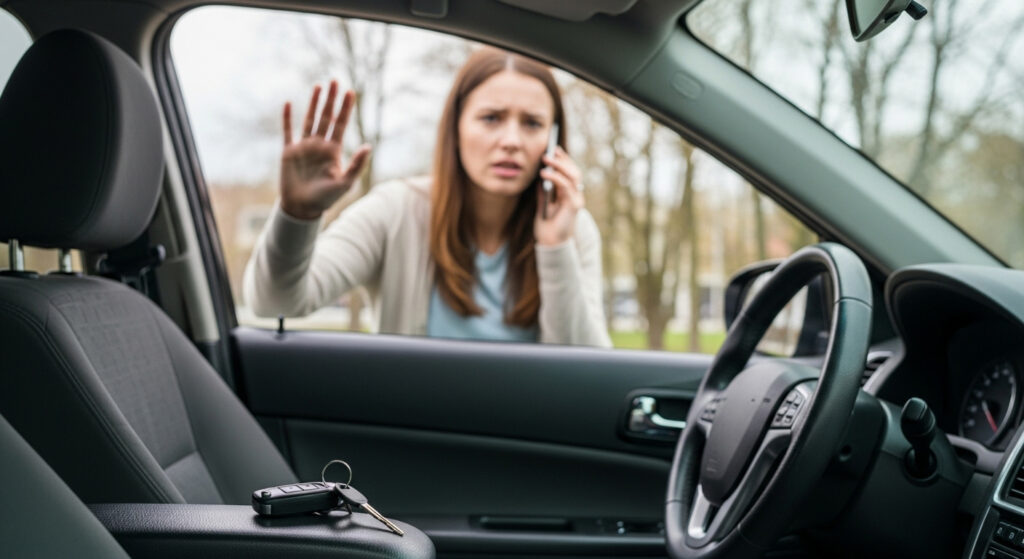How to Stay Calm During a Lockout Situation
A lockout can feel like the world has suddenly pressed pause. You reach for a handle, the door does not budge, and your plans fall out of step. Whether it happens at your front door, the office, or beside your car, that first jolt of frustration is normal. Calm is not about pretending the problem is small. Calm is about choosing a steady response that protects your safety, saves time, and prevents damage. With a simple plan and a few practical habits, you can navigate a lockout with clarity. This guide focuses on what you can control, how to protect your space and your vehicle, and how to turn an urgent moment into a manageable task.
Start With Your Breath and Your Bearings
The fastest path to clear thinking is a slower breath. Pause for a count in, hold briefly, then let it out longer than you inhaled. Two or three easy cycles can reduce tension and sharpen your focus. Look around and notice the basic facts. What time is it, who is nearby, what is the weather like, and how safe does this spot feel. If you are in a busy place, step to the side so you are not blocking an entrance or standing near moving traffic. If it is dark or uncomfortable, move toward lighting or a busier area while you consider next steps. Calm does not delay action. Calm prepares you to act wisely.
Check Safety First
Your safety matters more than speed. On a roadside or in a parking lot, stand where drivers can see you and keep a small buffer from the curb. In extreme weather, find shelter while keeping the door or vehicle in sight. If children or pets are involved, verify their comfort and temperature and call for immediate assistance if there is any concern. At an apartment or office, ensure you are not blocking an emergency exit. These quick checks reduce risk and give you a better foundation for problem solving. Once safety is set, your next choices become simpler and more effective.
Take Stock of Access Options
Before trying tools or force, scan your realistic options. Do you have a spare key with a neighbor, a nearby family member, or a coworker. Is there a trusted manager or superintendent with authorized access. For smart locks, confirm battery status if you can, and try a backup code or a mechanical override key. With vehicles, check every pocket, bag, and seat visually rather than patting down pockets in a rush. A calm inventory prevents repeated steps and keeps you from overlooking simple solutions. If no direct access appears, you are ready to choose a professional path without guesswork.
Avoid Damage From DIY Shortcuts
It is tempting to try a wire, a coat hanger, or a wedge when tension runs high. Those shortcuts can scratch paint, bend door frames, tear weather seals, or snag wiring for airbags and sensors. Doors that resist often have a reason, such as a misaligned latch or a security feature doing its job. For homes and businesses, prying a door can crack the jamb and weaken the strike plate, which reduces security long after the lockout ends. Calm means protecting what you own. If you decide to seek help, choose a method that preserves the door, the frame, and the lock so your costs stay focused on the solution rather than repairs.
Use Communication To Lower Stress
Tell someone where you are and what you need. A short message to a family member, friend, or supervisor can relieve pressure and create a support line. If you have appointments or obligations, send a quick update so people know you are delayed. This small step prevents a cascade of worries and gives you space to work the plan. Keep your phone battery in mind. Lower your screen brightness, close background apps, and consider moving a few steps to improve reception if calls or maps are failing. Clear communication turns a solitary problem into a manageable situation.
If It Is a Vehicle Lockout
Vehicles bring a mix of mechanical and electronic considerations. Many modern cars use transponder keys, proximity fobs, and ignition interlocks. A fob may appear dead when it only needs a battery or a reset. Some vehicles allow the fob to be held near a marked spot on the steering column for a passive start. If a child or pet is inside, call emergency services immediately and focus on safety. For routine situations, avoid forcing a window or prying near weather stripping. Professional entry tools can reach interior buttons without harming trim or sensors. A calm approach protects the car and usually gets you back on the road faster than a risky shortcut.
If It Is a Home or Business Lockout
Residential and commercial doors each have their quirks. Deadbolts with reinforced strike plates may resist casual attempts from the outside, which is exactly what they should do. Keypads may need fresh batteries or a reset sequence. For businesses, master key systems and access control logs may require a designated contact to authorize entry. Rather than testing brute force, consider how you usually authenticate access and duplicate that path. Keep identification ready, such as a driver license, a work badge, or proof of residence. Calm, documented access supports a smooth resolution and protects everyone who shares the space.
Manage Time and Emotions While You Wait
Waiting can feel like the hardest part. Set a simple rhythm to keep stress low. Breathe slowly, stand in a safe and visible spot, and use small tasks to stay anchored, like checking weather, confirming your location, or reviewing the steps you have taken. If you are with children, turn the pause into a mini plan, such as a game of naming colors or counting passing cars, without stepping into traffic. If you are alone, sip water if you have it and stretch your back and shoulders. These small actions lower adrenaline and keep you clear for the moment help arrives.
After Re Entry, Turn The Moment Into Prevention
A lockout offers a chance to make the next one less likely. Create a consistent key routine, such as placing keys in the same pocket or bag every time. Consider a spare key with a neighbor or a small lockbox at a discreet, secure location on your property. For vehicles, keep a spare fob battery in the glove box or with a trusted person, and learn any manual start procedure listed in your owner guide. For smart locks, set calendar reminders to replace batteries before they fail and keep a mechanical backup key available. Write down the steps that worked today, save the contact for trusted help, and store it where you can find it quickly. Calm grows from preparation.
Build a Personal Lockout Plan
A simple plan can turn a stressful surprise into a short delay. Decide who you would call first, where a spare key would live, and how you would verify your identity for a secure entry. Add small items to your everyday carry that support calm, like a phone charger, a compact flashlight, and a bottle of water in the car. If you manage a workplace or share a home, talk through access expectations so everyone knows what to do. The plan does not need to be complicated. It only needs to be clear and practiced often enough that it feels familiar when you need it most.
Keep Perspective and Move Forward
Lockouts happen to careful people. They happen to busy parents, to new employees learning routines, and to travelers juggling unfamiliar keys. Treat the moment as a detour, not a disaster. You chose safety checks, you protected your door or your vehicle, and you kept emotions steady enough to make good decisions. That is a success. The next time you head out, your spare will be in place, your routine will be smoother, and your plan will be ready. Calm is a skill you can practice. With a few steady habits and a clear set of steps, you will be prepared to handle a lockout with confidence and care.

